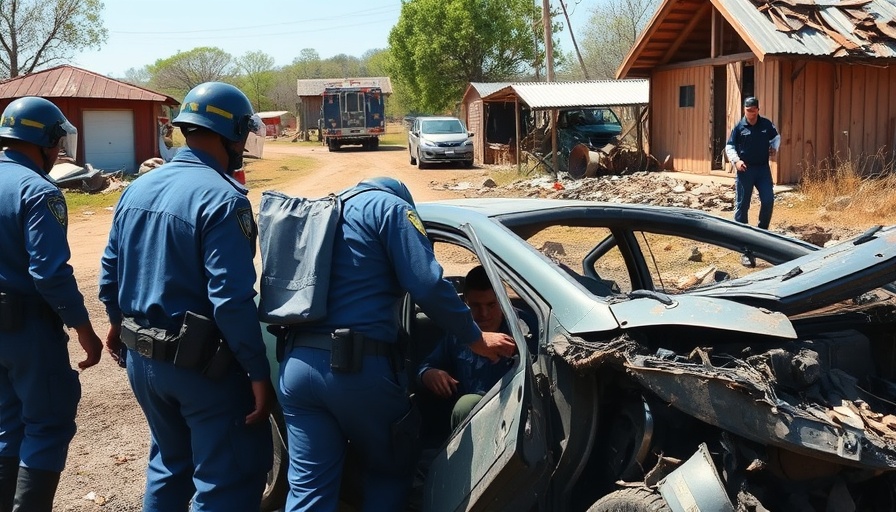
Understanding NATO’s Recent Coordination Efforts with Ukraine
NATO’s recent decision to coordinate arms deliveries to Ukraine, particularly large weapons packages purchased from the U.S., marks a significant turning point in military support for the embattled nation. Following the endorsement of the Netherlands and several Nordic countries, NATO has positioned itself to provide a more structured response to the ongoing conflict with Russia. This endeavor exemplifies not just a military alliance's response but also a collective commitment to uphold territorial integrity and support democracy in the face of aggression.
The Fundamentals of This Military Aid
In a coordinated move, the Netherlands pledged approximately €500 million ($578 million) to provide air defense equipment and ammunition. Sweden, along with its Nordic counterparts including Denmark and Norway, announced a combined $275 million initiative to enhance air defenses and deliver anti-tank weaponry. These actions illustrate the robust commitment among NATO allies to meet Ukraine's evolving battlefield needs effectively. The military packages are designed to be dispatched rapidly as their content is aligned with the priorities set forth by Ukrainian defense officials.
The Human Cost of the Conflict
While the military equipment is crucial, the humanitarian angle remains deeply concerning. According to the United Nations, over 12,000 Ukrainian civilians have already lost their lives due to ongoing assaults, particularly in urban areas that are far removed from front-line skirmishes. As the Russian military pushes for more territory, notably around the critical logistical hub of Pokrovsk, the urgency for effective defense measures escalates.
The Broader Implications of NATO's Involvement
NATO's coordination is not merely about delivering weapons; it is a statement of solidarity against Russian aggression. This military strategy comes at a time when many European nations recognize the gravity of enabling Ukraine to defend itself. Analysts note that the united front presented by NATO must also consider potential backlash or escalation that could further aggravate relations with Russia. Maintaining a delicate balance between support and provocation is paramount.
Future Predictions: What Lies Ahead?
The ongoing deliveries set for this month and the following months will significantly shape the dynamics on the ground. As these military assets arrive, questions arise about the long-term strategies both NATO and Ukraine may adopt. Will this lead to a prolonged period of conflict, or could it expedite diplomatic resolutions? The key will be in leveraging military support to catalyze negotiations rather than prolonging hostilities.
Expert Opinions: Diverse Perspectives
Experts have mixed feelings regarding NATO's increased involvement. Some argue that the arms shipments are vital for Ukrainian sovereignty, while others caution that it risks drawing NATO into a larger conflict with Russia. This dual perspective stresses the need for international dialogue alongside military readiness. As NATO continues to monitor the situation, the alliance must remain vigilant in its commitments while striving for diplomatic channels that prioritize the safety of civilians.
The Conclusive Value of Knowing This Information
Understanding NATO's ongoing support for Ukraine is crucial not only for international relations but also for grasping the very personal impact on millions of lives caught in the conflict. The integration of military strategies with humanitarian considerations is fundamentally important. As individuals and nations alike stay informed, they can better comprehend the stakes involved and perhaps contribute to efforts advocating peace.
Call to Action: Engage with Current Developments
As the geopolitical landscape shifts with each passing day in this unfolding narrative, it is vital for concerned citizens and leaders to remain engaged. Keeping abreast of NATO's initiatives and their implications will help shape their understanding of international responses to conflict. Now more than ever, the world must come together in support of peace, helping protect those affected by such overwhelming strife.
 Add Row
Add Row  Add
Add 




Write A Comment